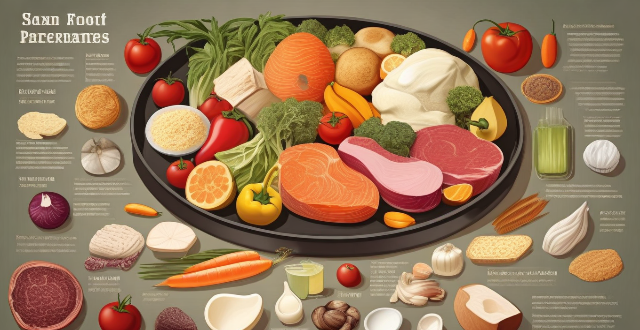Food safety is crucial to prevent illnesses from harmful substances. Here's a guide with tips like checking expiry dates, looking for quality marks, avoiding damaged packaging, proper storage, thorough cooking, washing produce, avoiding cross-contamination, being wary of allergens, buying from reputable sources, and staying informed about food recalls to ensure the food you buy is safe.

Ensuring Food Safety: A Comprehensive Guide
Food safety is a critical concern for everyone. The food we consume should be free from harmful bacteria, viruses, parasites, and chemicals that can cause illnesses or health issues. Here's a comprehensive guide to ensure that the food you buy is safe to eat:
1. Check the Expiry Dates
Always check the expiry dates on the packaging before buying any food item. This is especially important for perishable items like meat, dairy, and ready-to-eat foods. If the date has passed, do not buy it.
2. Look for Quality Marks
Many countries have quality marks or certifications that indicate the food has been produced according to certain standards. Look for these marks on the packaging. For example, in the US, look for the USDA mark on meat and poultry products.
3. Avoid Damaged Packaging
If the packaging is damaged, it could allow bacteria or other contaminants to enter the food. So, avoid buying foods with damaged packaging.
4. Proper Storage
Once you bring the food home, store it properly. Keep perishable items in the fridge and make sure your freezer is set to the right temperature to prevent bacterial growth.
5. Cook Thoroughly
Cook all food thoroughly to kill any harmful bacteria. Use a food thermometer to ensure that meat has reached the correct internal temperature before eating.
6. Wash Fruits and Vegetables
Wash fruits and vegetables thoroughly under running water before consuming them. This will help remove any dirt, bacteria, or pesticide residues that may be present on the surface.
7. Avoid Cross-Contamination
When handling raw meat, poultry, or seafood, take care to avoid cross-contamination with other foods. Use separate cutting boards and utensils for these items and wash your hands thoroughly after handling them.
8. Be Wary of Allergens
If you have food allergies, always check the labels for allergens. Even trace amounts of an allergen can cause a severe reaction in some people.
9. Buy from Reputable Sources
Buy your food from reputable sources. This could be well-known supermarkets, trusted local vendors, or certified organic farms. Avoid buying food from street vendors or unlicensed sellers.
10. Know the Recalls
Stay informed about any food recalls in your area. Many countries have websites or hotlines where you can get this information. If a food item you've bought is recalled, do not consume it.
By following these guidelines, you can significantly reduce the risk of foodborne illnesses and ensure that the food you buy is safe to eat.